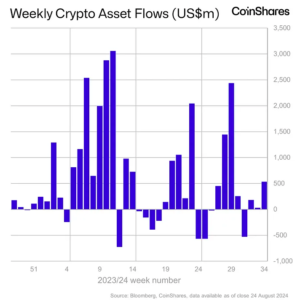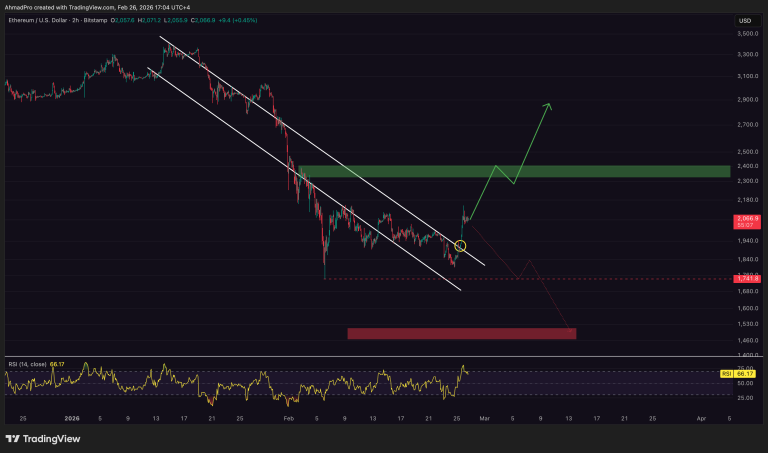Last updated:
 Why Trust Cryptonews
Why Trust Cryptonews

Ethereum co-founder Vitalik Buterin responded to criticisms concerning the sustainability and direction of Ethereum’s decentralized finance (DeFi) strategy, reigniting a debate within the crypto community.
The debate was initiated by X user @llamaonthebrink, who questioned the value and future of DeFi protocols and Ethereum’s role in them.
Vitalik Buterin and the DeFi Debate: A Clash of Views
The controversy began when X user @llamaonthebrink publicly challenged Buterin’s stance on DeFi. @llamaonthebrink expressed disbelief at rumors suggesting that Buterin and the Ethereum Foundation were distancing themselves from the very sector that drives much of Ethereum’s value.
They highlighted the irony of Buterin seemingly favoring centralized stablecoins like USDC over the DeFi protocols that have cemented Ethereum’s status as a leading blockchain platform.
Addressing Buterin directly and referring to him by the nickname “Vitamin,” @llamaonthebrink wrote: “If you have a line to Vitamin, I request that you send him this. I still don’t really believe the assertion that he doesn’t like DeFi, but I’d prefer to hear it from the horse’s mouth.”
Buterin’s response was direct and unapologetic. He strongly supported decentralized exchanges (DEXes), decentralized stablecoins such as RAI, and innovative platforms like Polymarket.
However, Buterin drew a clear distinction between sustainable DeFi projects and practices he considers unsustainable. His enthusiasm for DeFi is reserved for projects that are both useful and aligned with Ethereum’s core principles of decentralization and permissionlessness.
One of Buterin’s primary concerns is the source of the high yields often touted by DeFi projects. He criticized the 2021 liquidity farming boom, where high yields were primarily driven by token issuances—an approach he views as fundamentally temporary and unsustainable.
Buterin urged the community to consider where the yield is genuinely coming from and whether those sources can endure in the long term.
This stance provoked further discussion regarding Buterin’s pragmatic acceptance of USDC, a centralized stablecoin. Buterin acknowledged USDC’s imperfections but argued that its utility in facilitating global transactions, particularly in regions where traditional banking systems are less accessible, cannot be dismissed.
He pointed out that while USDC may not be ideal, its widespread adoption could serve as a stepping stone towards more decentralized alternatives, thus advancing Ethereum’s larger mission.
“Things that I *don’t* respect are basically things whose attractiveness comes from some temporary source that has no sustainability. I felt no excitement toward the 2021-era liquidity farming craze because it was obvious that it came from token issuances that are fundamentally temporary,” Buterin noted.
Vitalik’s DeFi Vision: Supporting Sustainable Growth
Buterin’s views on DeFi extend beyond finance to broader challenges posed by centralization in other sectors.
In his response, he expanded the discussion to highlight issues such as increasing political attacks on encrypted messaging, the dangers of centralized identity systems, the risks associated with centralized artificial intelligence (AI), and the growing control a few powerful countries exert over the global internet.
Buterin emphasized that while finance is an essential component of the decentralized ecosystem, it alone cannot counteract the centralization forces threatening global freedoms.
He argued that the focus should also be on supporting decentralized technologies that address these broader issues—technologies that often lack the financial backing and attention that DeFi projects receive.
This broader perspective resonated with many but also drew skepticism. Critics within the community questioned whether Ethereum could balance its DeFi ambitions with these larger goals or if the platform’s reliance on DeFi for value would inevitably limit its ability to drive meaningful change in other areas.
Buterin’s vision involves a synergy between decentralized finance and other decentralized technologies, suggesting that these intersections will be crucial in the ongoing battle against centralization.
He highlighted projects like RAILGUN and Farcaster as examples of how decentralized finance can support broader decentralized initiatives, from privacy-preserving payments to anti-spam mechanisms in social media.
In the end, @llamaonthebrink maintained a balanced conclusion and agreed with most of Vitalik’s points. However, they made it clear that while Vitalik’s visions are impressive and culturally ethical, they believed this would have no direct impact on ETH as an asset.
“While I agree with some of this, I feel like the things you have in mind that might take crypto another 10-100x, although fascinating, will not really equate to any value for ETH the asset,” they said.



















